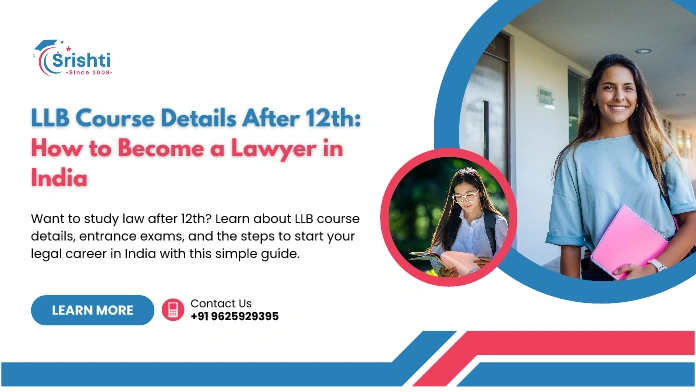
Selecting a teaching career starts with the appropriate academic background. The most sought-after paths to becoming a certified instructor include a Bachelor of Education (B.Ed.). (Bachelor of Education) and D.Ed. (Diploma in Education) courses. Although both roads lead to a teaching position, the type of program and level of teaching are quite different. Whether you wish to become a primary school teacher or target secondary or senior secondary classes, understanding the optimum time for applying for B.Ed or D.Ed courses is essential in academic and career planning.
The timing of your application can influence your chances of selection, college availability, entry exam dates, and your readiness. This blog offers an in-depth understanding of how to determine the right time to apply for B.Ed or D.Ed programs and what should serve as guidance.
Understanding the Difference Between B.Ed and D.Ed
Before jumping into timelines, it is essential to understand the differences between programs. A B.Ed is a two-year professional degree needed to teach at secondary and higher secondary levels. It's undertaken after graduation and is usually considered mandatory for those aspiring to develop a long-term career in teaching.
Conversely, a D.Ed course is a diploma course usually pursued after Class 12. It is better for those who want to become teachers at the pre-primary or primary levels. Both courses are teacher training courses, but their entry levels, durations, and career prospects differ.
Recognizing these fundamental differences helps you gauge your intellectual level and determine which course is better suited to your teaching aspirations.
Academic Qualifications and Eligibility Timeline
Eligibility is key to deciding when to apply. To apply for B.Ed courses, you must have graduated in any stream with a minimum aggregate percentage (generally 50–55%, depending on the institute and category). Students nearing the completion of their final year can also begin the application process, as most institutions grant provisional admission pending the outcome of their studies.
For instance, if you wish to pursue a B.Ed from KUK, it is essential to follow the university's admission circulars and entry examination dates, which are typically announced at the beginning of the year. Good institutions have rigid deadlines and a competitive entry process.
In contrast, D.Ed programs are open to students who have completed their Class 12 with a minimum percentage (often around 50%). If you're a school student appearing for your Class 12 board exams, it's ideal to begin tracking D.Ed course admission updates in your final year itself.
Knowing when you will meet the academic requirements helps you narrow down institutions and monitor deadlines accordingly.
Best Time to Apply for B.Ed or D.Ed Courses
The optimal time to enroll in B.Ed or D.Ed programs is primarily based on institutional calendars, entrance exam dates, and your readiness for academic programs. The majority of B.Ed. and D.Ed. courses in India operate on an academic year that starts between July and September. Applications typically open between March and June, although this timeframe may vary depending on state or university-specific rules.
For example, if you want to apply for B.Ed admission 2025, make preparations for your documents and entrance examination forms by 2025. Entrance examinations for B.Ed courses, such as CUET, MAH B.Ed CET, or DU B.Ed, typically take place between April and June, with results and counseling issued soon after.
D.Ed admissions do not always require entrance examinations, but rather are subject to centralized counseling processes in most states. Applications typically begin around the same time as B.Ed., i.e., March to June. Suppose you're considering admission to the D.Ed course in 2025. In that case, maintaining awareness of state education boards and SCERT (State Council of Educational Research and Training) websites from the start of the year will help you avoid missing any opportunities.
Planning According to Your Academic Milestones
If you are in your final year of graduation and looking for the best time to apply for B.Ed after graduation, the ideal time is your last semester. Universities provide you with the opportunity to use your earlier semesters' mark sheets and give you conditional admission, subject to the completion of your degree.
Waiting for your results to be announced can postpone your admission by a whole academic year, particularly when entrance exams are missed. So, it's best to follow admission notices and entrance exam announcements in your final year.
In the same vein, Class 12 students seeking D.Ed courses should start shortlisting courses and preparing documents immediately after their board exams. This keeps them ahead of the deadlines and gets them admitted without losing a year.
Other students also venture into various career paths, such as law, and the LLB admission process follows a similar pattern. Applications typically begin early in the year, and entry tests or merit-based selection processes are prevalent in most universities.
Entrance Exams and Counseling Schedule
One of the most crucial aspects of deciding when to apply for B.Ed or D.Ed courses is knowing the entrance exam dates. For B.Ed, some universities and states have entrance exams, while others use merit-based admissions. You need to register for these exams a long time before the application deadline—usually two to three months prior.
As soon as the examination is over, results are generally declared within a month, followed by centralized counseling or direct admission. The institutions allocate seats on a first-come, first-served or merit basis; hence, advance application provides a benefit.
For D.Ed programs, most states do not take an entrance test but hold centralized admission rounds. The rounds are time-bound and can involve document verification, merit lists, and counseling sessions. Omitting any of these steps may result in the cancellation of your application.
Therefore, coordinating your application with the complete timeline—right from exam dates to counseling—is critical.
Students pursuing LLB in Ghaziabad or other competitive courses will realize that professional courses in any field tend to follow a similar process, with deadlines staggered between March and July.
Practical Considerations: Readiness and Resources
Although institutional timelines are critical, your preparedness also determines the optimal time to apply. Your preparation for entrance exams, the availability of necessary documents, and financial readiness should not be overlooked. For example, if you want to apply to a university that requires a teaching aptitude test, you will need to allocate preparation time.
Also, your readiness to collect documents such as caste certificates, domicile proofs, graduation transcripts, and migration certificates may influence the speed at which you can apply.
If you're targeting competitive institutions, start preparing at least six to eight months in advance. Early preparation enables you to gather resources, seek coaching if needed, and ensure your application is flawless and error-free.
Avoiding the Common Pitfalls
Many students procrastinate in submitting their applications because they are uncertain or uninformed, which often results in missing out on great colleges or accepting colleges with poor rankings. Knowing the deadlines for B.Ed and D.Ed courses prevents you from falling behind in the process.
Moreover, candidates who wait for the last admission cycle or stray too close to the deadline often face problems with document submission, counseling slots, or fee payment deadlines.
To avoid such pitfalls:
- Subscribe to university newsletters
- Regularly visit the official portals of your preferred institutes
- Set reminders for application and exam dates
- Keep scanned and physical copies of necessary documents ready
These small steps ensure that you're never caught off guard by deadlines or sudden announcements.
Making a Strategic Choice
It's not just about when to apply, but also where. If you're aiming for top-tier universities or government institutions, using the first admission window significantly increases your chances. Private colleges may keep admissions open longer, but early application still offers the benefit of seat choice and reduced competition.
If you are doubtful about pursuing a B.Ed or D.Ed, think about your career objective. If your target is teaching at the school level (Class 1–5) and you have passed Class 12, the D.Ed course is more suitable. If your goal is to teach at the secondary or higher secondary level and you hold a graduation degree, a B.Ed. is an appropriate option.
Final Thoughts
Choosing the ideal time to apply for B.Ed or D.Ed courses is a combination of academic preparedness, institutional deadlines, and personal aspirations. Getting started early not only helps defeat competition but also facilitates a hassle-free admission process. Monitor official notifications, prepare for entrance exams if required, and apply when the applications become available.
Whether you're aiming at B.Ed admission 2025 or preparing for D.Ed course admission 2025, having an idea of when and how to move sets you ahead. By synchronizing preparation with admission periods and not leaving it for the last moment, you can move forward confidently towards your career in teaching.
Recent Post








